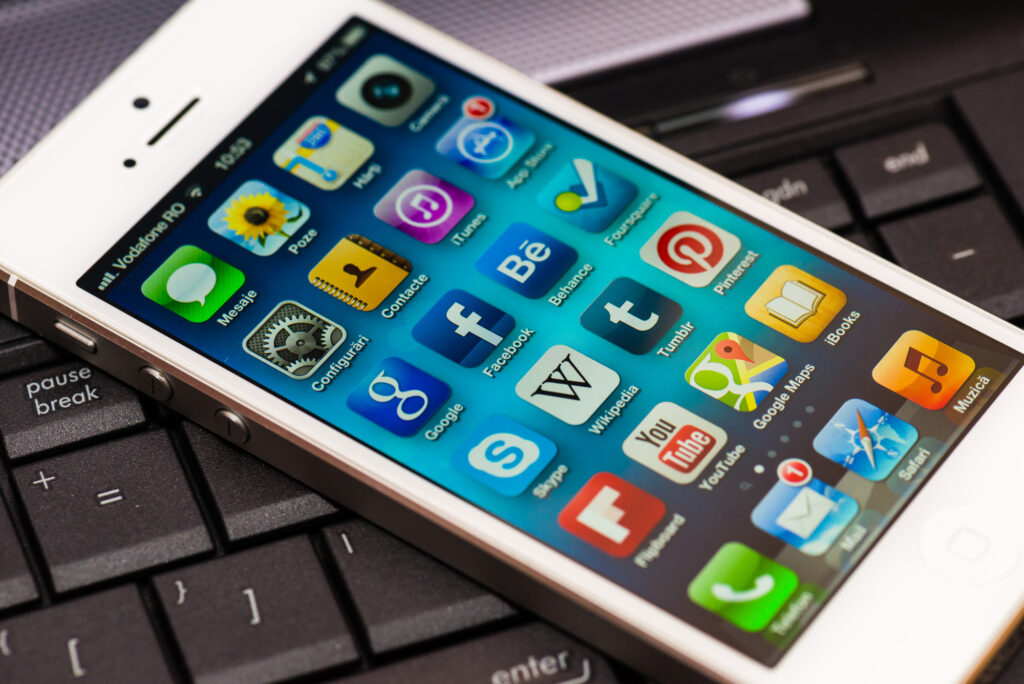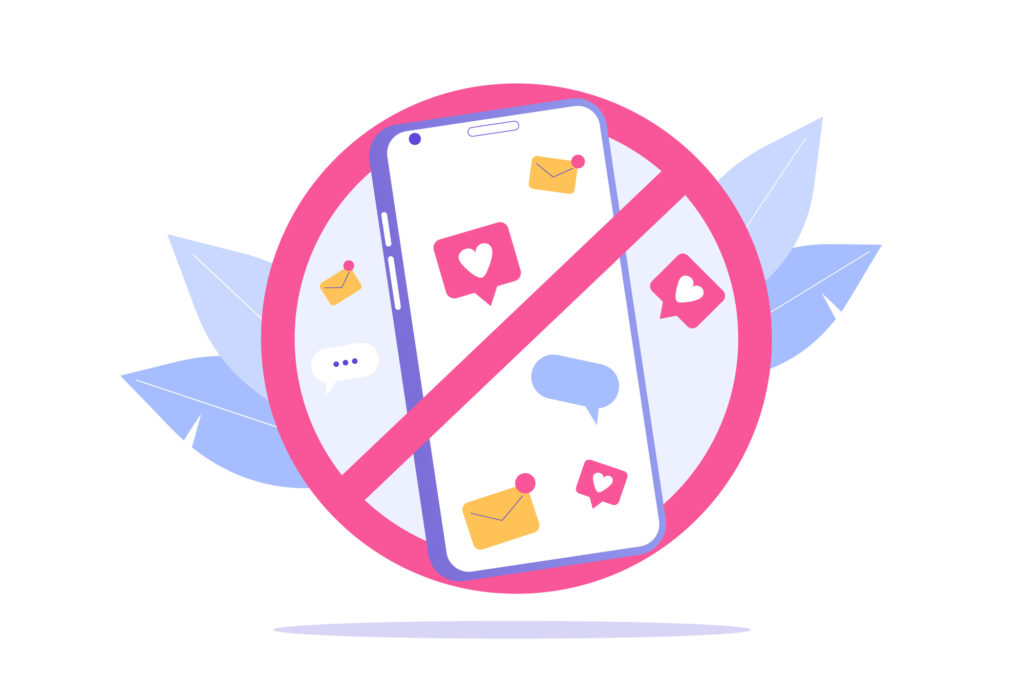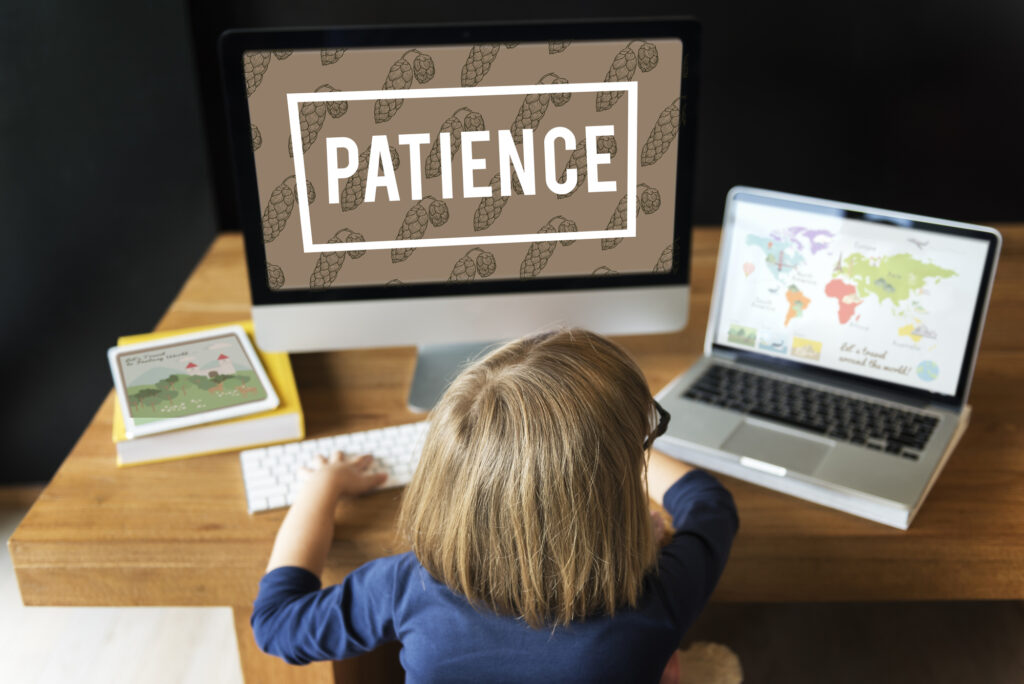By Brooke Trenwith
Originally published in Tall Poppies Magazine March 2018

My theme this year is to focus on using technology to support gifted students. So, before we get to that, it is important that we begin the year addressing the need for balance in a world that is drenched in technology. Technology has its good side and its bad sides and the key, is balance.
If you were on any form of social media in 2017, you would have seen, the viral You Tube clip of on Sinek’s Dangers of Social Media. Haven’t seen it? Look it up! For me, only just a non-millennial, it struck a lot of nerves. It warns of the issues that our new generations are dealing with in regards to instant gratification, the need for create impact and the influence that technology (specifically social media) has on dopamine production on the body.
Dopamine is a neurotransmitter that helps control our brain’s reward and pleasure centres. Liraz Margalit, a writer at Psychology Today, writes about how our brains love routine and dopamine is released each time we establish a habit (like flicking the switch and the light coming on). We learn to expect it, therefore it forms a habit into our neural pathways.
For those thinking about this, habits dictate about 45% of what we do each and every day.
But….I want a stronger burst of dopamine?
Then you need a positive surprise – lots of “likes” on Facebook, more followers on Instagram, getting to a new level on a favourite online game, winning something etc.
These positive surprises create a burst of dopamine, which make us feel better. Margalit continues that our brains can only turn actions into routines, the more simple the action, the easier it is to build a habit and get our ‘hit’ of dopamine.

Want to feel better? Click on an app.
So, what does this mean for gifted children?
It often means that they are relying on technology to get the dopamine hit, whereas we used to use relationships or intrinsic forms of behaviour to make us feel good. When I was a child and had a bad day at school, I would go and talk it through with my mum while we had some cheese and crackers with an orange juice.
In my early 20s, a bad day would mean that I would make myself a cup of tea in my favourite antique cup (given to me by my best friend), I could increase that dopamine by sharing that drink with a friend. Double that age, a bad day (or good day or mediocre day) sees me hopping on Facebook for comments…likes and shares. And I am a “sensible” adult.
In 2018, the World Health Organisation recognised video gaming addiction as a genuine mental health disorder. As dangerous as alcoholism, drug or gambling addiction. Sinek states that like any addiction, addiction to technology (our phones, tablets, social media, online gaming…) will negatively impact on our relationships, career prospects and mental/physical health. Kevin Roberts, a former teacher at the Roeper School for the Gifted, published a book called Cyber Junkie: Escape the Internet and Gaming Trap in 2010. In an article for 2E Newsletter, Roberts wrote:
“[Gifted students] finding themselves outside the academic mainstream often leads to social troubles for these young people as well. Because they lag in important skills such as reading social cues, they tend to have difficulty relating to others. Instead, they often settle for relating “with” others through the security of the computer screen; and they take shelter from life’s demands in the ever-changing stimulation of games, Internet surfing, and online social networking. As a result, these youngsters can stagnate both socially and academically.”

This desire to “connect” with others through social networking over face to face is a concern. Research from John Hopkins University in 2017 showed that face to face interactions heightened a person’s sense of well-being. However, it confirmed that the use of Facebook was negatively associated with well-being.
Facebook even acknowledged, in December 2017, that passive consumption of information is often bad for your sense of well-being or mood. The New York Times reported that the powers that be at Facebook had been influenced by an article in a 2015 paper (from the Journal of Experimental Psychology) which had shown that passive use of Facebook, even if only for 10 minutes a day, “had a negative effect on students’ sense of well-being”. In January 2018, as a response to this negative press, Facebook announced that they will be changing their algorithms so that readers will see more of their friends and family posts – and therefore use Facebook in a more “meaningful” way.
Does this “bad side” of technology mean that we should be discouraging gifted children from using Facebook, playing online games, using social media etc?
No! But we need to acknowledge that the internet and social media can have a negative impact on our children. We also need to model strategies and techniques to ensure that our technology use is ‘balanced’. The most recognised non-substance addiction is gambling and this can help form a behavioural basis for what an addiction is. Simon Sinek said in his virial You Tube clip. “if you look at your phone before you say good morning to your partner, you have a problem”.
Some key addiction behaviours to look for are:
- it causes problems in their everyday life;
- they are trying to not use the technology but are unable to stop themselves;
- they experience anxiety or become agitated if unable to access technology (e.g. forgetting their phone or not being able to login);
- they need “more” to get the dopamine hit (e.g. they feel good after one like but now need ten likes to get the same “hit”);
- there is a compulsion to keep playing or browsing with negative effects.

Modelling
There is a saying of “do what I say, not what I do” and for gifted students, this is an argument some cannot accept. The first key to using technology is to examine, reflect and change your own beliefs and habits. Are you telling your child/your class, that they can’t use phones at the dinner/in the classroom, yet you are contradicting yourself, and using it at a family dinner/in the classroom?
Parents are often told by teachers to ensure that their child’s cell phones are kept in the living room rather than in their bedrooms. This is a practical way to ensure that sleep is happening rather than gaming, texting, social media etc during the dead of the night.
What is crucial is that if this is a rule for your children, you need to follow it as well. Leave everyone’s phones charging in the living room.

Unplugging
If some technology isn’t working, my first step is always to reboot it or unplug it. The same can be said for people – we need to unplug for a while. Heading out? Leave your phone at home. Have set times when technology is a no go area.
Brooke McAlary, author of the Slow Home Podcast gives ideas of how her family “unplugs for a while”. While many other authors talk about the most important time to ‘unplug’ is after sunset. Lower the lights, take away screens (and their bright lights) in order to help you and your children’s bodies produce the melatonin that they need to get a good night’s sleep.
Mentor rather than just monitor
Your child wants a Facebook page? Let them have it. But become their ‘friend’. Resist all temptation to write on their wall, tag them in memes etc. The last thing your kids want is their parents actually doing something on their page (this seems to change in their mid-20’s). In this situation you are only monitoring. See something that makes you uneasy, step into the mentoring role. Talk with your child about why it makes you uneasy. Help them recognise when they are being pulled into the rabbit hole of social media arguments and talk about how much harder it is to say something to someone’s face then to type it.

Teach patience
Instant gratification is one of the main issues that are is impacting on these ‘digital natives’. So helping your children learn mindfulness (check out Smiling Mind) or having to wait for things and build up anticipation. Do they want a new toy? Help them save for it by doing chores for pocket money, they can’t buy it until they save the money. Use Stories with Holes by Nathan Levy (google it!) and allow your children three questions each day. See how long it takes them to work the answer out. Once they get it, discuss how good it feels when you work hard for something rather than getting it straight away.
Get it in writing
Work with your child to write technology kaupapa – how do we use technology. Negotiate it. Put is writing and have it on the fridge or up on the wall. Stick to it.
Want more advice?
Time magazine also gives tips of how to manage your children’s device use. There are also some excellent infographics on the Understood website. The Art of Screentime by Anya Kamenetz is also an excellent read.
